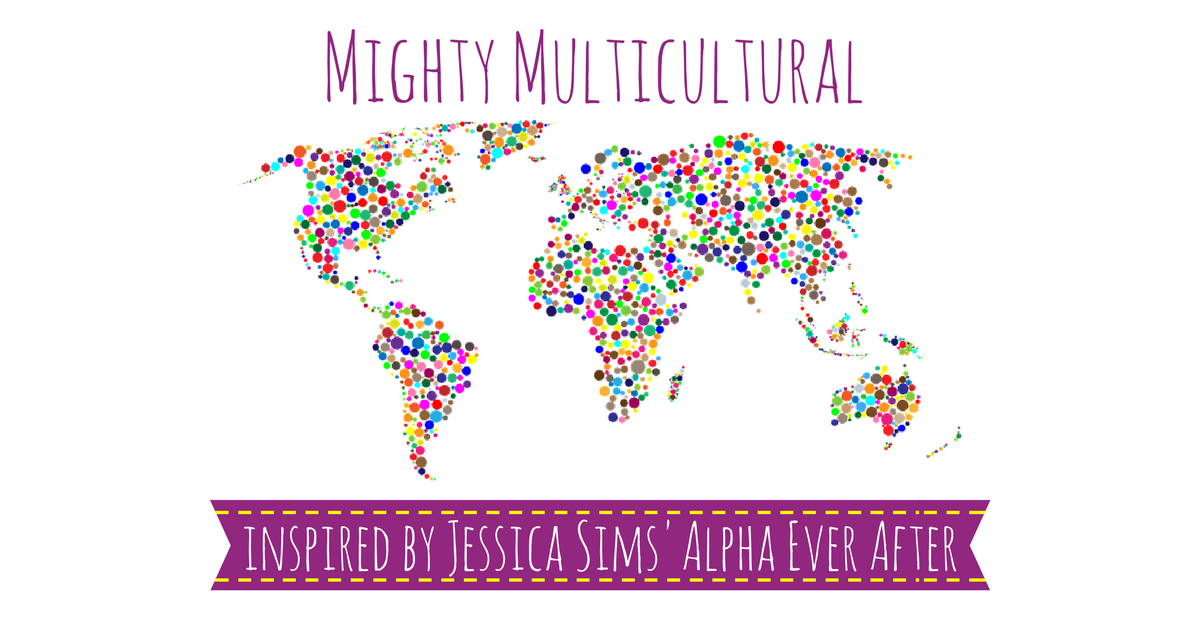I just finished the latest installment of Jessica Sims' Midnight Liaisons series, Alpha Ever After. Very enjoyable. The plot revolves around Savannah, a were-cougar, and Connor, a werewolf. She's pregnant with his twins (long story), but she is resistant to the idea of a marriage and happily-ever-after with him. Once he gets with the partnership over dictatorship program, however, the violins start to play for our cat and dog shifters. And therein lies the rub; maybe Ghostbusters got it right— dogs and cats living together may signal the apocalypse. Or, such cohabitation may provide a lesson in learning to adjust to individual and group differences so that all might benefit. When I was growing up, my mother told me that marriage was hard and that differences in race, religion, culture, economic and intellectual status just make it harder. She told me I'd be well served to find someone whose roots and background were just like mine, so we could avoid questions about where and how and whether to worship, which foods to eat, which ways to pass the time, how to earn and spend money, etc., etc., etc. My mother wasn't wrong, exactly. It probably is easier to have all those questions answered right from the start of a marriage. But, wow, does that also sound supremely boring. Predictable, expected, lacking in any spontaneity or adventure – or the thrill of rebellion. No, thanks.
And while I didn't marry the truly exotic—my husband is a white American, after all—his roots are sufficiently different from mine that life has been anything but dull. Certainly, the differences in our religious upbringings, childhood environments and early life experiences have made for an interesting and sometimes difficult-to-navigate life partnership. I've introduced him to matzo balls and potato pancakes, and he's introduced me to smoked turkeys for Thanksgiving and scrapple. Hardly seems like a fair trade. But beyond the culinary differences is our basic approach to child-rearing in some respects, our finances, how and where we vacation; he introduced me to camping for the first time when I was 28 years old, and to the view of a riverbank from the middle of the river, rather than from one side or the other. Revelatory. I introduced him to the rare species of animals that inhabit Park Avenue.
Our families, like those of Savannah and Connor, took a while to warm up to each other. That can happen. I will never forget my brother's wedding, which occurred 10 months before ours. My sister-in-law comes from a Mormon background. At their reception, the two sets of families and friends had been placed at different tables on opposite sides of the room where the dinner was held. On my brother's side, we Jews were whooping it up, eating, drinking and making merry—loudly and with gusto. The Mormon side of the hall was dead silent, with very little movement and no exuberance at all. They looked at us like we were lab rats. But hey, we would’ve done the same, if we'd bothered to notice them at all once we decided they were kill-joy party poopers. We were all wrong to adopt such judgmental attitudes. Those two families never did warm up to each other, a sadly, predictable outcome of the wedding seating.
Seeking to avoid such an obvious dichotomy at our wedding, my husband and I mixed the tables up and spread them randomly around the room so that it was hard to tell who was who and who was with whom. It worked, and the resulting party remains one of the best I've ever attended (not that I'm biased or anything). And, again predictably, our families have done very well together over the years, to the point that my brother invited my husband's sister and her family to his son's bar mitzvah several years ago. It was great.
When we talk about blended families we usually refer to spouses who’ve been previously married and bring children from other partners to the mix – aka (hopefully) Brady Bunch-style. But I'd like to suggest that all families are blended—simply by virtue of two individuals coming together who have different families of origin. Whether those disparate nuclear families represent differences in race, religion, culture, nationality, socio-economic status, or even if their backgrounds are similar – blending of some sort must occur.
When we marry, we blend. We add to the great melting pot that is America. Sometimes the mix is more successful than others. But nothing gets blended without effort—we've got to mix it up and hope the result doesn't splatter everywhere. Without effort, there can be no gelling. In those cases, like at my brother's wedding, the discrete ingredients exist side by side, like oil and vinegar – neither able to cross the divide to form a tasty vinaigrette. Don't do it. Make that effort to mix. Life is much sweeter if we blend. Besides, if cats and dogs can do it, so can we. And in the end, the result may be blended children who owe their heritage to all sides—just like Connor and Savannah’s little ones.

